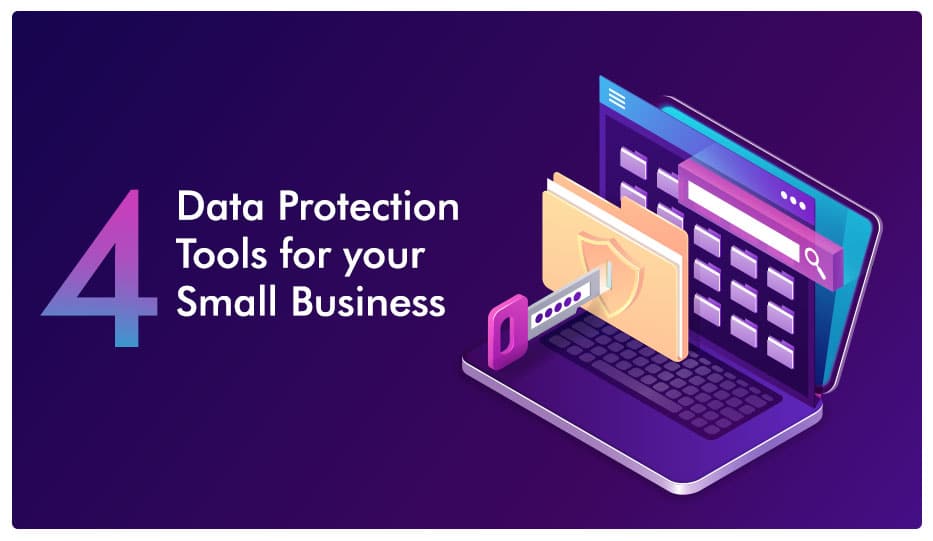
Any business today generates heaps of data, a majority of which is confidential. No matter the size and scale of your organisation, if you use digital modes of communication (which we are sure you do), it means you are generating data. Or if you have an online presence like a website to connect with your prospects, you are again generating data. This data comprises of email trails, invoices, leads, credentials, and customer data. Having said that, you now need solid data protection tools to keep your confidential data safe from prying eyes.
A breach not only exposes sensitive information pertaining to your business and its customers, it also makes you vulnerable to further cyber-attacks. Hackers use data theft to gain illegal access to systems, use the stolen data for extortion, or even leak it to the dark web for sale. The major side effect of a data breach is loss of brand reputation, which sometimes proves to be more harmful than any monetary losses you might face.
Data protection tools to have in your arsenal
Fortunately, protecting sensitive business data is totally in your control. Even though hackers are evolving, these 4 tools prove to be more than enough to prevent your business data from being stolen.
Next Gen Firewalls
A firewall’s basic purpose is to monitor bi-directional network traffic, i.e., both incoming and outgoing network data packets. A firewall analyses each data packet against a set of rules. If the network traffic fails to comply with the rules is blocked.
Thus, the firewall acts as an effective first line of defence against cyber-attacks.
However, you can improve upon the basic firewall by additional features like Intrusion Prevention System and Deep Packet Inspection. An NGFW provides these features and more. Also, the NGFW secures cloud-based applications along with traditional applications.
Implementing a next gen firewall slashes your exposure risk down to 50%.
DNS protection tools
A Domain Name Service is essential for communicating over the Internet. A DNS maps your IP addresses to the domain name of your websites and web applications (called as address resolution).
However, because DNS resolution is so universal and inevitable, it is also subject to hacking. A hacker misuses DNS mapping to impersonate brands and domains, effectively fooling innocent victims.
If you can protect your interactions over the Internet at this very preliminary stage, you can achieve a higher level of security for your data and applications. A robust DNS protection tool ensures you can always trust the entity on the other side of the communication, and are not interacting with a threat actor in disguise.
DNS protection also keeps network requests from being redirected to spam / spoofed destinations, since every web request is tightly coupled with an identifying DNS record.
Reading resources – DNS Compliance Regulations to consider for the best DNS protection.
Endpoint security solutions
This data protection tool has suddenly become vital in recent years. This is because we have increased the number of endpoints in the equation. We connect to work and sensitive data from our phones, non-standard work machines, and over untrusted / unknown networks (for e.g., the Wi-Fi at a café you are working from). Moreover, nowadays, a lot of data and applications are served from the cloud.
The WFH culture added even more complications because your home setup is not going to be as secure as your office setup.
An unbreakable endpoint security keeps your devices from falling prey to hackers. It also automates much of your security while using your many devices.
Anti-virus offerings, anti-malware solutions, and VPNs are all used to prevent threats at your device endpoints. They encrypt all your outgoing and incoming data and web requests, so a hacker in the middle cannot intercept and tamper with them.
But how do you choose a good endpoint security solution? Here are 4 factors to consider for effective endpoint security.
You can also shift the responsibility of securing your endpoints to Logix, by taking a look at our endpoint security services.
Email gateway security
Email is the most vulnerable medium for a security breach. We convey so much sensitive information over email that it’s become a favourite for hackers.
Hackers exploit email vulnerabilities through BEC attacks, ransomware, email domain impersonation, and credential theft. What’s even more dangerous is that hackers have been known to silently infiltrate your email and not cause any noticeable damage. Then one fine day, they launch a disastrous attack and you are left wondering how and when it happened.
Logix has always advocated strong gatekeeping instead of efficient firefighting. Why risk a poison getting in your system just because you have the antidote? The smart thing is to not ingest it in the first place!
That’s why strong email security is part and parcel of this set of data protection tools. You may have the means to recover from an email hack, but it will drain your resources.
With our Cloud Email ATP, we practice what we preach. We have designed our email security solution to be proactive in the face of email threats. We detect and prevent all major cyber attacks ahead of time. Power-packed reporting and insights, Cloud Email ATP truly makes you the master of your email security.
Here are some additional resources for achieving the best email security:
- A complete guide on BEC.
- Everything you need to prevent ransomware.
- Achieve simplified email security with Cisco.
Don’t be dazed by how rapidly hackers are evolving. Your security is still in your hands. If you need any additional assistance in securing your business, or acquiring these data protection tools, let us know!